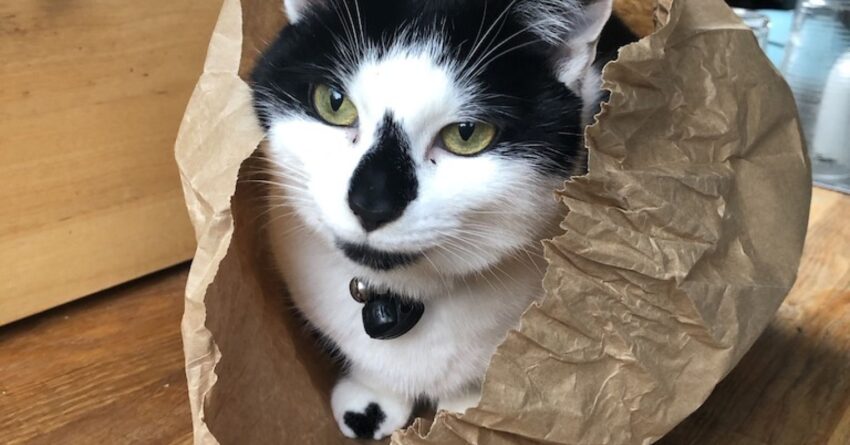
For some, a fear of enclosed spaces presents an obstacle to travel
Source: Andrew Stevenson
Travel is fraught with potential fears, anxieties, worries and phobias. But how are these distinct from one another, and why are they associated with travel?
Travel fear is typically directed towards a specific threat, like an unattended package. It focuses on known, identifiable, angers.
Travel anxiety is a generalized response to a non-specific threat, often experienced as a vague, uncertain feeling. Do you ever feel inexplicably anxious about leaving home?
A phobia is an intense fear, maybe requiring treatment. These are irrational, impair normal functioning and provoke avoidance behaviour, typically leading to cancelled journeys.
Like fear, travel worry is directed at something specific but it is a little less intense.
The good news is that fear and worry are part of the normal functioning travel behaviour and can help to steer us along a safer course. They have the potential to trigger problem-solving, whilst anxiety befuddles us and makes solutions less likely, and phobias are most likely to lead to cancellations.
Travel fever ain’t all bad
The term ‘travel fever’ has historically been used as a catch-all phrase, bundling together the fears, worries, anxieties and phobias associated with mobility. Pulling us in two directions, it combines the nervous anticipation of entering the unknown with uncertainty about what is being left behind. Many people feel it to an extent, and sometimes it can be a helpful travel companion.
Arrival in unfamiliar destinations typically prompts feelings of worry, fear or anxiety, for many reasons. Even the very tourist attractions that prompted travel in the first place can be unsettling, perhaps because of unfamiliarity or lack of control over the experience. Likewise, participating in mundane activities in unfamiliar surroundings can provoke feelings of uncertainty around large crowds, unfamiliar languages, heights, heavy traffic, heat, overzealous police, or contact with people from unfamiliar cultural groups. Indeed, encountering cultural difference often manifests itself as culture shock, a form of travel fever defined as a series of related psychological reactions developing over time with continued exposure to an alien culture (Cort & King, 1979: 212).
Yet culture shock is far from universally experienced by travellers. Those who are unaccustomed to encountering diverse cultures are most likely to be unsettled by it. Furthermore, travellers who are generally intolerant of ambiguity in their everyday lives (lovers of order and tidiness) are particularly susceptible to culture-shock anxiety (Cort and King (1979).
In extreme cases, when travel fever gets out of control, phobia can attach itself to a range of experiences that are synonymous with travel; open space (agoraphobia), enclosed space (claustrophobia), crowds (demophobia), busy roads (hodophobia), flights (aviophobia), infection (nosophobia). There are plenty of potential phobic objects, although some of these phobic objects present perceptible risks, so it is debatable as to whether these are irrational fears (phobias) or justifiable fears. Arguably, rational travel fears (of heights, wild animals and infection) are helpful responses that can keep us safe.
Facing the fever: When fear and worry can help you travel
For those who are susceptible to travel fever but still want to travel, it makes sense to proceed with caution when planning a holiday or work visit. So-called conservative travel involves opting for local destinations, sticking to branded hotels, hiring native-language guides, eating familiar food or participating in group tours (McKercher & Lui, 2013). Package tourism, for example, provides travel experiences for the risk averse, even if it takes the fun out of the journey for more intrepid adventurers.
Conservative travel creates bubbles from which to experience new places minus the immersion. Traveller enclaves like cruise ships, luxury coaches, international hotels, theme parks and backpacker hostels facilitate travel without the risk (Wilson & Richards, 2008). Travel bubbles shield us against culture-shock anxiety, allowing us to avoid risky destinations and activities, or at least visit them with caution (Lu & Wei, 2019). Conservative travel decisions are not for everyone, yet they are often made because of alarm bells sounded by our old friend travel worry, a key factor in translating risk perception into protective action (Monica Chien et al, 2017). Worry heightens health risk perceptions and motivates protective behaviour. The more we worry, the more alert we are to travel threats. Worry can be a valuable travel companion. It reminds us of risks and nags us to do something about them (Watkins, 2008).
Like worry, fear prompts protective behaviour in the face of threat (Boss et al, 2015). Whilst fear may be distressing, it helps us take threats more seriously, increasing the likelihood of self-protection (Chen & Yang, 2019). For example, during a global pandemic the threat of travelling to a region with high infection rates can trigger fear, motivating us to protect ourselves by postponing travel or going elsewhere. Assisted by fear, worry, and any available statistical evidence, some travellers prefer to eliminate risky destinations from our list of alternatives at the travel planning stage (Sharifpour et al. 2014).
Worry and fear are friendly travel agents that can supplement our sense of self-efficacy when making travel plans. High levels of self-efficacy empower us, prompting us to comply with protective measures and travel advice. There is a positive correlation between perceived efficacy and motivation towards protection (Wang et al, 2019). The moral here is that if we feel anxious or worried about travel, we should choose an itinerary with more controllable factors. The practice of tweaking travel plans by altering routes or avoiding dangerous spaces is an example of what has been termed ‘problem-focused coping’ (Shimazu & Schaufeli, 2007). In other words, we manage travel risks by deliberate, effective planning.
Cautious, conservative travel is not everyone’s idea of adventure. However, for those travellers who feel concerned about wandering too far from home, fear and worry may be precisely the travel companions they need.
